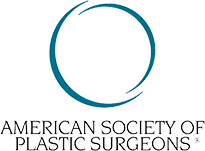From Restylane® To Facelifts – Checking Credentials Paramount When Choosing Cosmetic Plastic Surgery
For Immediate Release: December 15, 2003
ARLINGTON HEIGHTS, Ill. – With the U.S. Food and Drug Administration’s (FDA) approval of Restylane ® on Dec. 12, and with other fillers on the horizon, the arsenal of cosmetic plastic surgery treatments to attack wrinkles, furrows and folds continues to grow. For those interested in these new treatments, it is paramount to consider the procedure as they would any medical treatment and check their physician’s credentials.
Whether considering injectables or facelifts, patients must determine that their physician is qualified to perform the procedure. Injectables such as Restylane and Botox ® are medical procedures that should be performed by a qualified physician who understands neuromuscular and facial anatomy as well as side effects of the product.
With the growing popularity of surgical and less-invasive cosmetic plastic surgery treatments – more than 6.5 million last year – comes the increase in unqualified practitioners stepping up to take advantage of the growing number of patients.
“More and more patients are seeking the care of a plastic surgeon to repair facial damage after being treated by someone who does not have the proper training,” explains Rod Rohrich, MD, president, American Society of Plastic Surgeons (ASPS). “In most states, a licensed physician can perform cosmetic plastic surgery without being board-certified in plastic surgery. Select a plastic surgeon who has a wide breadth of experience not only with injectables, but with surgery – one who will look at you comprehensively.”
The American Society of Plastic Surgeons recommends patients follow these guidelines when choosing any cosmetic plastic surgery procedure.
- Check Board Certification: Determine if your physician is certified by a board approved by The American Board of Medical Specialties (ABMS). Members of the ASPS are certified by The American Board of Plastic Surgery, the only board recognized by ABMS that certifies physicians in plastic surgery of the face and all areas of the body. This ensures that the plastic surgeon has graduated from an accredited medical school and completed at least five years of additional residency, usually three years of general surgery and two years of plastic surgery.
- Ensure Safe Facilities: Everyone who chooses cosmetic plastic surgery has the right to a safe procedure. Injectables should be administered in a setting with appropriate medical personnel and necessary equipment to observe patients and manage potential complications, as well as provide for the disposal of medical waste as required by Occupational Safety and Health Administration regulations. ASPS requires all members who perform surgery under anesthesia to do so in an accredited, licensed or Medicare-approved facility.
- Require a Medical Evaluation: When considering a cosmetic plastic surgery procedure, consult with a physician for an evaluation, as well as a full medical history, to determine what is most appropriate.
- Be Informed: Speak with friends and family about the procedure as well as with a physician. When a treatment decision is made co-operatively between the physician and patient, the physician should explain the risks, benefits, alternatives, and reasoning for the proposed treatment, after which an informed consent document should be signed by the patient.
- Look For Specialty Group Affiliation: Membership in the ASPS ensures that not only is the plastic surgeon certified by the American Board of Plastic Surgery, but that the plastic surgeon regularly attends continuing medical education courses and adheres to a strict code of ethics. For referrals to ABPS-certified plastic surgeons call the ASPS at (888) 4-PLASTIC (888-475-2784) or visit www.plasticsurgery.org.
- Ask Questions:
- Are you certified by The American Board of Plastic Surgery?
- What is the best procedure for me?
- Where and how will you perform my procedure?
- What are the risks involved with my procedure?
- Will my procedure need to be repeated?
- How much downtime should I expect?
- Do you have hospital privileges to perform cosmetic surgery?
- How much will my procedure cost?
- Are financing options available?
The American Society of Plastic Surgeons is the largest organization of board-certified plastic surgeons in the world. With more than 6,000 members, the society is recognized as a leading authority and information source on cosmetic and reconstructive plastic surgery. ASPS comprises 94 percent of all board-certified plastic surgeons in the United States. Founded in 1931, the society represents physicians certified by The American Board of Plastic Surgery or The Royal College of Physicians and Surgeons of Canada.
